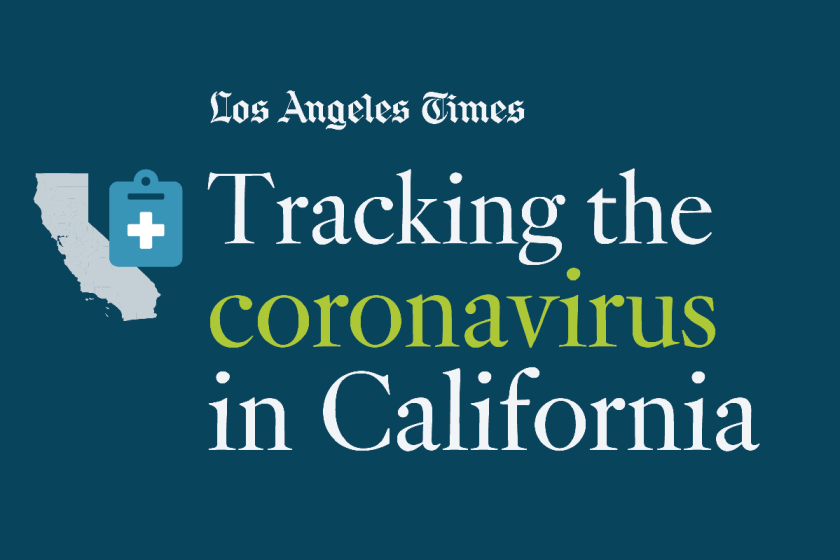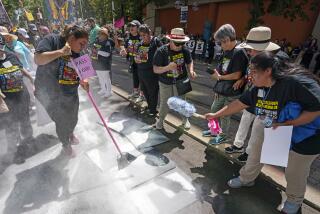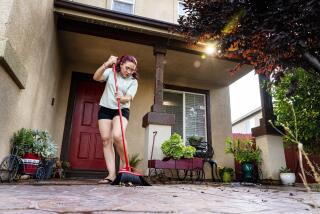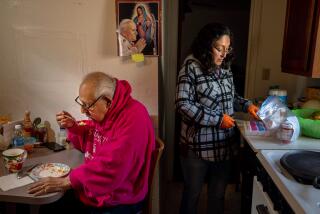As coronavirus spreads, housekeepers in L.A. declare staying home ‘a luxury’
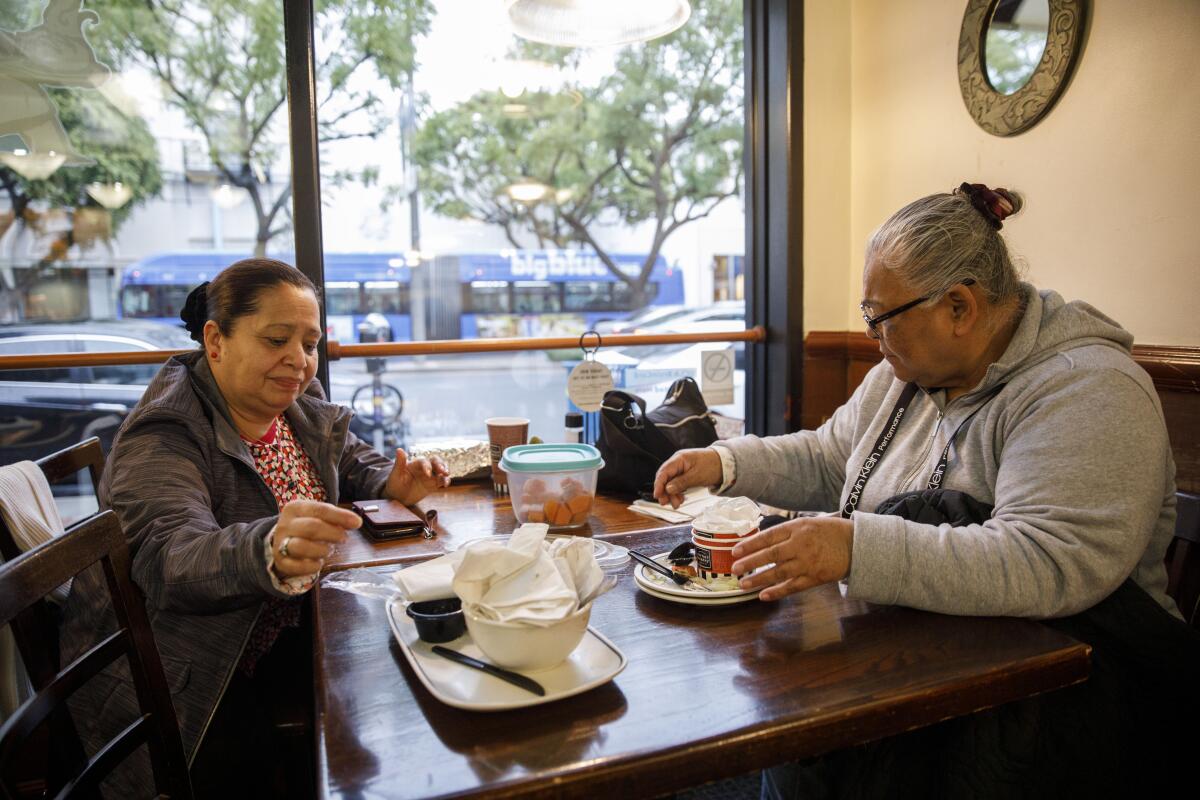
For years, the housekeepers have met every morning at a Westwood cafe for coffee and conversation before starting their workday.
They talk about their children and grandchildren, family back in Central America and problems with husbands or work. The chats have served as a kind of therapy.
But in the past month, their numbers at the cafe have begun to dwindle — courtesy of an unwanted visitor: fear over the coronavirus.
As the pandemic continues to spread, with growing numbers in the U.S., more and more employers are telling their domestic workers to stay home. On Friday, President Trump declared a national emergency over the coronavirus outbreak.
Many of those fortunate to be able to keep making their living were nevertheless dealt a blow on Friday as the Los Angeles Unified district closed all its schools, complicating their ability to make sure their children were looked after while they work.
On a recent weekday morning, Doralicia Bermudez sat with a handful of women topping yuca with curtido that someone brought in for breakfast. A family she works for canceled on her over fear of coronavirus.
“They don’t pay,” she said. “And the bills keep coming.”
Companies across the U.S. have been urging employees to work from home in response to the growing viral outbreak in the country. But for many caregivers and domestic workers, that’s not an option.
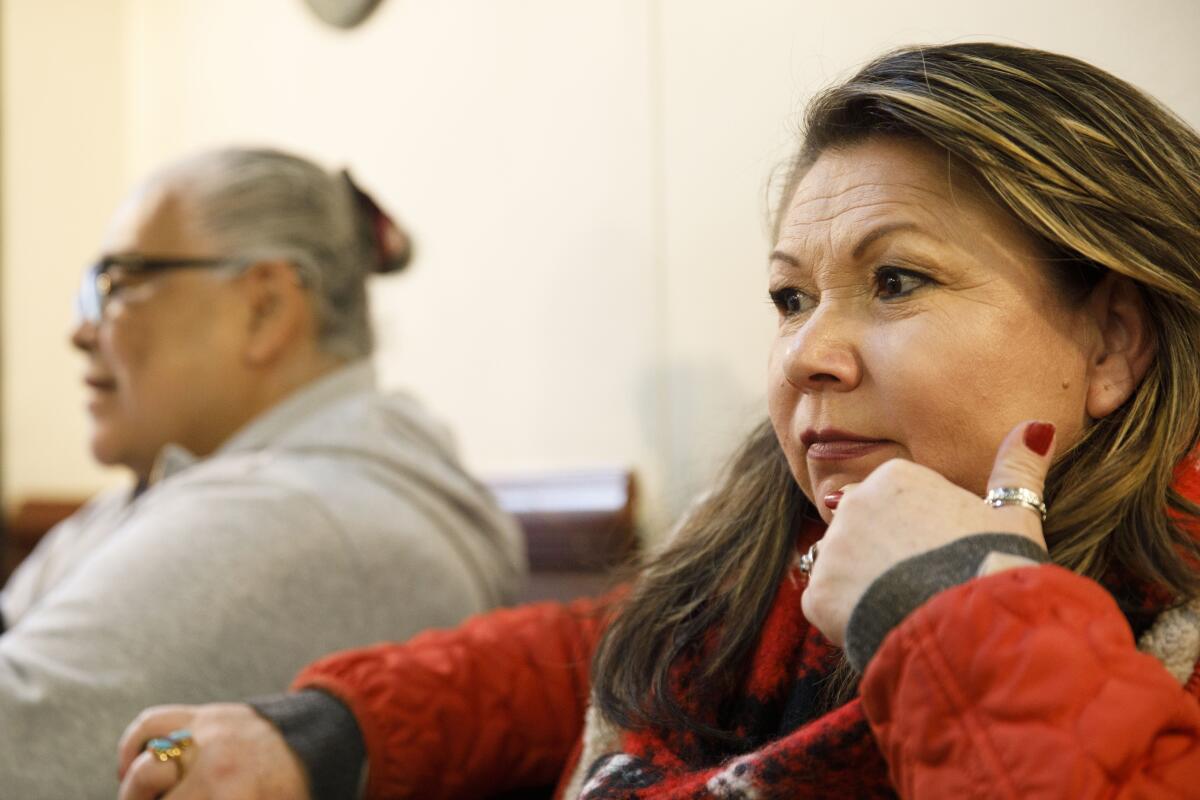
“Staying home is a luxury,” said 44-year-old Sonia Rodriguez, who works six days a week cleaning houses and serving as a caregiver for a senior with Alzheimer’s disease. Rodriguez, who recently lost her husband, lives in San Fernando with her four children.
Many of the housekeepers take buses to get to work. They worry this leaves them exposed to the virus, which thrives on close contact. Experts have suggested that people practice social distancing to stay safe. But, like staying home, this too feels like a luxury they can’t afford.
“If they quarantine us,” Rodriguez said, “where are we going to get money?”
There are an estimated 2.5 million domestic workers across the country. Most don’t have access to healthcare and 83% do not get paid sick days, according to Ai-jen Poo, founder and director of the National Domestic Workers Alliance.
On a call with domestic workers last week, Poo heard from workers worried about losing jobs and not being able to put food on the table. A nanny, for example, said she was fired by employers who said they were doing social distancing and didn’t want anyone coming into their house.
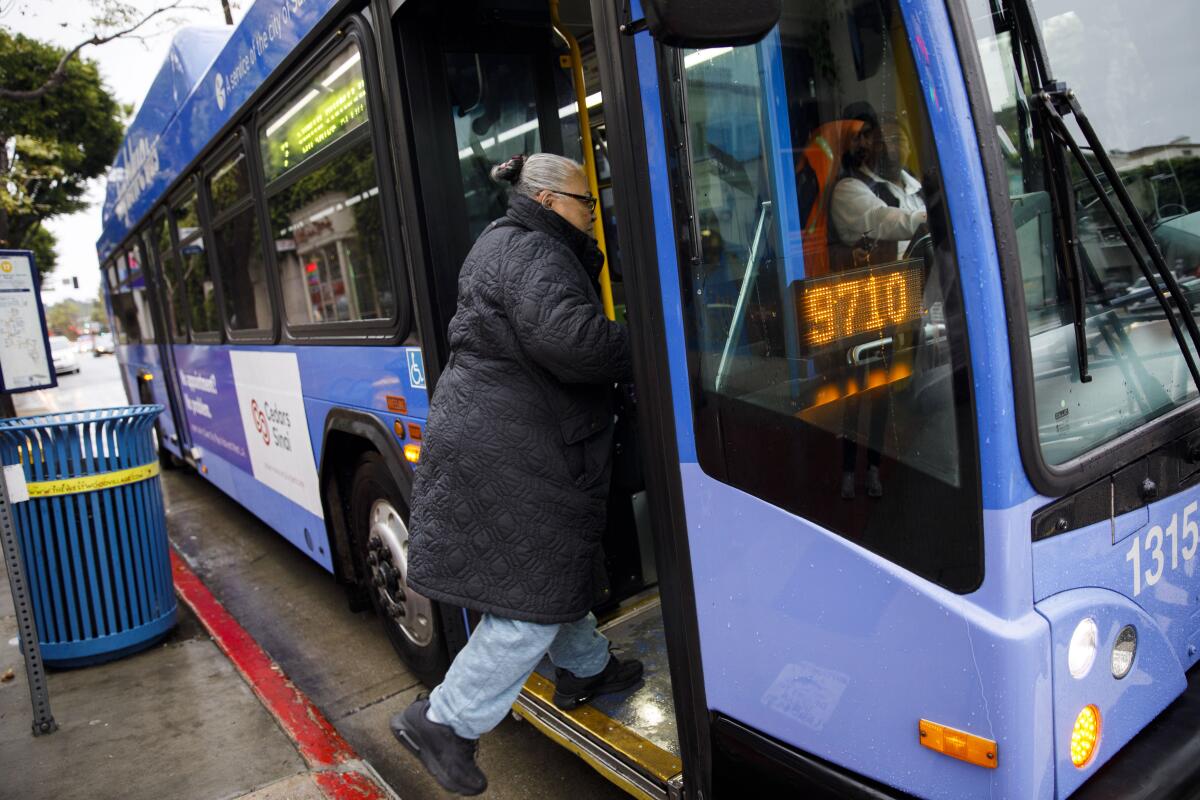
“From a wages and income perspective, most domestic workers can’t afford to take a single day off,” Poo said. “When you look at the world through the eyes of domestic workers ... you start to see the ways in which the crisis is compounded for low-wage workers.”
The National Domestic Workers Alliance has focused on passing bills of rights for domestic workers, and created a benefits platform that allows employers to contribute to an account that would help workers to get paid time off and insurance.
“This is such a precarious workforce,” Poo said. “I’ve often described the domestic work industry as the Wild West because there’s such a long history of exclusion from basic rights and protections.”
As the coronavirus continues to spread, with more than 2,500 cases in the U.S. as of Saturday afternoon, some organizations are offering advice on how to support caregivers and domestic workers. Hand in Hand, a national network of employers of nannies, house cleaners and home attendants, has released a guide on “How to be a fair employer during the coronavirus pandemic.”
It urges employers to come up with a plan for what to do in the case of illness and to provide paid sick leave for domestic workers so they can visit the doctor or stay home to care for themselves or family members who might be sick.
For Carmen Solano, a Brentwood housekeeper, the subject of coronavirus hasn’t come up with her employers. In the fall, Solano was one of a number of housekeepers who showed up to work in a neighborhood that was under mandatory evacuation because of the Getty fire.
The latest maps and charts on the spread of COVID-19 in California.
Solano, 64, has diabetes and worries about the coronavirus, which is especially dangerous not only to older people but those who have underlying health issues.
Some counties have warned the elderly and people with asthma, chronic obstructive pulmonary disease, diabetes, chronic liver disease, blood disorders and other conditions to remain at home as much as possible.
But Solano needs the money to pay her $900 rent.
“I already make so little for rent,” she said. “I don’t want to end up on the street.”
At the Westwood cafe, hand sanitizer was a fixture in workers’ bags, tucked beside extra pairs of shoes and lunches. The women slid into booths next to one another or crowded around tables, stashing rain jackets in their bags.
“Ahora, las voy a saludar asi,” joked Rodriguez, holding a hand close to her mouth and blowing air kisses at the four women seated at a corner table. (“Now, I will greet you like this.”)
Each time the door opened, the women turned, prepared to greet another friend.
They’ve known each other for years. Some met as they shared a bus to work on the Westside; others in this cafe near UCLA. Many of them fled El Salvador decades ago, trying to escape a civil war that tore the country apart.
“We’re here for each other in the good times and the bad,” said 59-year-old Sonia Esperanza Valencia, who has worked as a housekeeper in a Westwood home for over 20 years.
She watched her employers’ daughters grow up. One of the girls told her that when she got married, she wanted Valencia there. Valencia’s phone is filled with pictures of the now 23-year-old woman, who lives in New York.
Valencia counts herself lucky. Her hours have not been cut. But those of her husband, a truck driver, have.
While some employers have canceled on workers without paying, others have offered to help as much as they can.
Rodriguez has friends who have continued working in homes where people are sick. Another called asking Rodriguez if she could help her find work after one family let her go over a cough.
If Rodriguez has to stay home, either because she or her employers become ill, two of the five families she works for said they will keep paying her for about a month.
“Obviously I won’t be earning the same, but I’ll still have their support,” she said. “Fortunately, I work with good families.”
More to Read
Start your day right
Sign up for Essential California for news, features and recommendations from the L.A. Times and beyond in your inbox six days a week.
You may occasionally receive promotional content from the Los Angeles Times.

